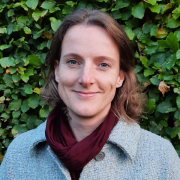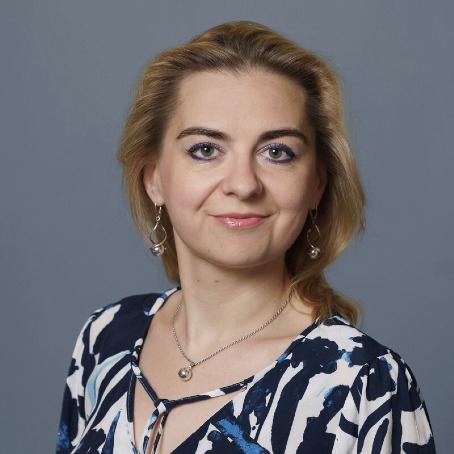ERC grants for three UG researchers
Researchers Bart Besselink, Else Starkenburg and Jagoda Slawinska of the University of Groningen have been awarded an ERC Consolidator Grant. The European Research Council (ERC) awards these personal grants of two million euros to outstanding scientists. With this grant, the ERC stimulates groundbreaking research in Europe.
The Consolidator Grant is for promising researchers with seven to twelve years of experience since completing their PhD. They can use the grant to fund their team of researchers and support staff for a period of five years.

Prof. Bart Besselink | COCOS
Contracts for Control System Design
The expansion and performance improvement of our engineered systems have traditionally been achieved by increasing the level of automation, driven by advances in control system design. However, control theory can no longer keep up with the growing complexity of the engineered systems we want to control, such as high-tech manufacturing systems, autonomous vehicles, and smart power grids. Namely, such systems are subject to ever-tighter performance specifications and comprise more and more distinct but interacting components, such as the multitude of sensors, actuators, and controllers in an autonomous vehicle.
The project “Contracts for Control System Design” will address this complexity by developing a novel control theory that is inherently modular, allowing for components to be considered independently. By enabling the translation between component-level and system-level specifications, this framework supports the engineering practice in which components are designed independently, while guaranteeing the performance of the integrated system. This will allow control system engineers to guarantee the efficient, safe, and reliable operation of next-generation engineering systems.
More information

Prof. Else Starkenburg | EARLYMW
A detailed reconstruction of the early Milky Way from its most metal-poor stars
The EARLYMV project aims to understand the early history of our Galaxy, focusing on its first few billion years after the Big Bang. While missions like Gaia have provided critical insights into the Milky Way's past, its earliest epochs remain poorly understood. This is mainly due to the scarcity of well-studied early generations stars.
Next generation massively multiplexed instruments, in particular WEAVE and 4MOST, will soon enhance Gaia's data with radial velocities and chemical abundance patterns for these ancient stars. Starkenburg and her team have been heavily involved preparing for these surveys and, with her ERC team, she is looking forward to conduct a first comprehensive census of very metal-poor (and probably old) stars across the Milky Way. Their work will investigate early enrichment processes across different Galactic environments, ultimately delivering a better understanding of the proto-galaxy that evolved into the Milky Way.
More information

Jagoda Slawinska, PhD | FERRERO
Computational design of sliding ferroelectrics and multiferroics from Van der Waals materials
The FERRERO project addresses the growing need for ultra-fast, energy-efficient electronics by developing advanced materials and device concepts. At the heart of this innovation is sliding ferroelectricity—a unique mechanism where electric polarization is controlled via sub-nanometer interlayer shifts in van der Waals materials. This concept offers low-energy, room-temperature operation, ideal for next-generation electronics.
While ferroelectric materials show great promise for combining logic and memory in the same device, achieving efficient, non-destructive readout remains a challenge. The project aims to overcome this by designing ferroelectric van der Waals bilayers optimized for spin-orbit readout, enhancing spin-to-charge conversion efficiency for reliable cascaded circuits. In addition, magnetic materials will be explored to further simplify device architectures by coupling magnetic and ferroelectric properties.
By integrating computational physics with materials design, this ERC project seeks to advance ferroelectric, multiferroic, and spintronic technologies, paving the way for energy-efficient and high-performance computing solutions.
More information
| Last modified: | 09 December 2024 10.00 a.m. |
More news
-
01 April 2025
NSC’s electoral reform plan may have unwanted consequences
The new voting system, proposed by minister Uitermark, could jeopardize the fundamental principle of proportional representation, says Davide Grossi, Professor of Collective Decision Making and Computation at the University of Groningen
-
01 April 2025
‘AiNed’ National Growth Fund grant for speeding adoption of AI at SMEs
Professor Ming Cao receives an ‘AiNed’ Growth Fund grant of EUR 2.4 million for research that will contribute to faster adoption of AI at SMEs in the technical industry in the Netherlands.
-
01 April 2025
'Diversity leads to better science'
In addition to her biological research on ageing, Hannah Dugdale also studies disparities relating to diversity in science. Thanks to the latter, she is one of the two 2024 laureates of the Athena Award, an NWO prize for successful and inspiring...
